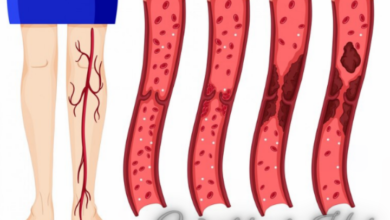Alzheimer’s Disease

Millions of people worldwide are affected by Alzheimer’s disease, which is a degenerative neurological ailment. Within the scope of this all-encompassing book, we dig into the complexities of Alzheimer’s disease, examining its causes, symptoms, stages, life expectancy, and possible treatment possibilities. Our objective is to give a comprehensive resource that goes above the material that is already available, providing insightful information to those who are looking for information about this challenging illness.
Alzheimer’s Disease Symptoms
The Complexity
Because the symptoms of Alzheimer’s disease might appear gradually, it is essential to notice the early indicators of the disease immediately. There are a number of characteristic symptoms, including memory loss, cognitive decline, and decreased thinking. There is a possibility that individuals will have trouble executing activities that are known to them, difficulties in problem-solving, and uncertainty about the time or location. The progression of the disease may result in a decline in communication skills and the manifestation of behavioral problems.
Alzheimer’s Disease Cause

Delving into the Roots
Research shows that a mix of genetic, environmental, and lifestyle variables contribute to the development of Alzheimer’s disease, despite the fact that understanding the actual causation of Alzheimer’s disease remains elusive. It is often believed that the buildup of beta-amyloid plaques and tau tangles in the brain, which disrupts communication between nerve cells, is the origin of Alzheimer’s disease. A history of certain genetic alterations may also raise the likelihood of developing the disease.
Alzheimer’s Disease Caused by Deficiency Of
Nutritional Deficiencies and Cognitive Health
Recent research suggests that there may be a connection between Alzheimer’s disease and deficiencies in certain nutrients on the part of the patient. It is essential to maintain enough quantities of omega-3 fatty acids, vitamins B and D, and other nutrients in order to keep cognitive function in good condition. The risk of Alzheimer’s disease may be reduced and general brain health may be supported by consuming a diet that is both well-balanced and abundant in certain nutrients.
Alzheimer’s Disease Cure
Navigating Treatment Options
Although there is presently no known cure for Alzheimer’s disease, continuing research aims to find novel treatment approaches for the disease. To control symptoms and improve the quality of life for specific people afflicted by this illness, pharmaceutical intervention strategies, lifestyle modification strategies, and cognitive treatments are investigated.
Alzheimer’s Disease Stages

Charting the Progression
Caregivers and people who have been diagnosed with Alzheimer’s disease must have a solid understanding of the disease’s stages. The progression of the disease normally occurs via stages that are mild, moderate, and severe. Early intervention, individualized care plans, and support networks are all essential components in the process of adjusting to the ever-changing problems that are given at each consecutive stage.
Alzheimer’s Disease Life Expectancy
Addressing Long-Term Outlook
Life expectancy for people with Alzheimer’s disease varies based on a number of variables, including age, general health, and the stage of the disease at which this diagnosis is made. Even while there is no timeline that can be definitively established, awareness and proactive management have the potential to favorably improve the long-term outlook for people and their families.
Types of Alzheimer’s Disease
Navigating the Diversity
Alzheimer’s disease is not an illness that can be treated in a universal manner. Understanding the different kinds of Alzheimer’s disease is essential for providing individualized treatment. Every form of Alzheimer’s disease—including familial Alzheimer’s, sporadic Alzheimer’s, and early-onset Alzheimer’s—presents its own set of obstacles, necessitating tailored approaches to diagnosis, treatment, and support.
Conclusion
With the goal of providing a more nuanced knowledge of Alzheimer’s disease, our comprehensive guide aims to transcend the material that is already available in terms of both breadth and depth. Through an examination of the causes, symptoms, deficiency-related elements, possible remedies, stages, life expectancy, and kinds of this complicated ailment, we provide our readers with a comprehensive understanding of the conditions involved. Keeping up with the latest developments in Alzheimer’s disease research is essential in order to successfully navigate the hurdles that this disease presents. Millions of people worldwide are affected by Alzheimer’s disease, which is a degenerative neurological ailment. Within the scope of this all-encompassing book, we dig into the complexities of Alzheimer’s disease, examining its causes, symptoms, stages, life expectancy, and possible treatment possibilities. Our objective is to give a comprehensive resource that goes above the material that is already available, providing insightful information to those who are looking for information about this challenging illness.





